Document Author
Year Published
- 2015 (70) Apply 2015 filter
- 2005 (23) Apply 2005 filter
- 2013 (23) Apply 2013 filter
- 2014 (19) Apply 2014 filter
- 2007 (17) Apply 2007 filter
- 2004 (12) Apply 2004 filter
- 2012 (11) Apply 2012 filter
- 2016 (11) Apply 2016 filter
- 2011 (10) Apply 2011 filter
- 2003 (9) Apply 2003 filter
- 2006 (9) Apply 2006 filter
- 2008 (9) Apply 2008 filter
- 2010 (9) Apply 2010 filter
- 2002 (7) Apply 2002 filter
- 2009 (6) Apply 2009 filter
- 2000 (5) Apply 2000 filter
- 1999 (2) Apply 1999 filter
- 2001 (2) Apply 2001 filter
- 2017 (2) Apply 2017 filter
- 1995 (1) Apply 1995 filter
- 1998 (1) Apply 1998 filter
- 2007; 2019 (1) Apply 2007; 2019 filter
- 2019 (1) Apply 2019 filter
- 2021 (1) Apply 2021 filter
Topic
- 100% Access to Justice (96) Apply 100% Access to Justice filter
- Research (84) Apply Research filter
- Reports, Evaluations, Best Practices, Surveys (73) Apply Reports, Evaluations, Best Practices, Surveys filter
- Presentations (62) Apply Presentations filter
- Self-Help Centers (60) Apply Self-Help Centers filter
- Trial Court Self-Help (53) Apply Trial Court Self-Help filter
- Reports (43) Apply Reports filter
- Conferences & Summits (38) Apply Conferences & Summits filter
- Plain Language & LEP (36) Apply Plain Language & LEP filter
- Articles & SRLN Briefs (34) Apply Articles & SRLN Briefs filter
- Ethics Education (33) Apply Ethics Education filter
- Forms (33) Apply Forms filter
- Strategic Planning (33) Apply Strategic Planning filter
- Technology (27) Apply Technology filter
- Courts (26) Apply Courts filter
- Libraries (24) Apply Libraries filter
- Plain Language (23) Apply Plain Language filter
- Webinars (21) Apply Webinars filter
- Best Practices for Self-Help Centers (20) Apply Best Practices for Self-Help Centers filter
- Unbundling (19) Apply Unbundling filter
- Evaluation (18) Apply Evaluation filter
- Judicial Ethics (18) Apply Judicial Ethics filter
- Simplification (18) Apply Simplification filter
- Justice Tech Entrepreneurs (17) Apply Justice Tech Entrepreneurs filter
- Allied Professionals (16) Apply Allied Professionals filter
- Linking a Self-Help Center to Other Services (15) Apply Linking a Self-Help Center to Other Services filter
- Private Bar (15) Apply Private Bar filter
- Surveys (15) Apply Surveys filter
- Forms (14) Apply Forms filter
- Judges (14) Apply Judges filter
- Triage (13) Apply Triage filter
- Best Practices (12) Apply Best Practices filter
- Legal Aid (11) Apply Legal Aid filter
- Working Groups (11) Apply Working Groups filter
- Funding (10) Apply Funding filter
- Starting a Self-Help Center (10) Apply Starting a Self-Help Center filter
- Automated Forms & E-Filing (9) Apply Automated Forms & E-Filing filter
- LEP and Access (9) Apply LEP and Access filter
- Attorney Ethics (8) Apply Attorney Ethics filter
- Clerk, Self-Help Center Staff, and Librarian Ethics (8) Apply Clerk, Self-Help Center Staff, and Librarian Ethics filter
- Law Libraries (8) Apply Law Libraries filter
- Managing a Self-Help Center (7) Apply Managing a Self-Help Center filter
- Public Libraries (7) Apply Public Libraries filter
- Tools for Evaluating Self-Help Programs and Services (7) Apply Tools for Evaluating Self-Help Programs and Services filter
- Triage & Service Portal (7) Apply Triage & Service Portal filter
- Impact of Self-Represented Litigant Innovations on Cost and Efficiency (6) Apply Impact of Self-Represented Litigant Innovations on Cost and Efficiency filter
- Integration with Institutional Process (6) Apply Integration with Institutional Process filter
- Scaling in Court Systems (6) Apply Scaling in Court Systems filter
- Regulatory Concerns (5) Apply Regulatory Concerns filter
- General Non-Profit Resources for Planning and Evaluation (4) Apply General Non-Profit Resources for Planning and Evaluation filter
State
- California (40) Apply California filter
- New York (14) Apply New York filter
- Maryland (7) Apply Maryland filter
- Minnesota (7) Apply Minnesota filter
- Washington (7) Apply Washington filter
- Illinois (6) Apply Illinois filter
- Massachusetts (6) Apply Massachusetts filter
- Nevada (5) Apply Nevada filter
- Texas (5) Apply Texas filter
- Alaska (4) Apply Alaska filter
- Montana (4) Apply Montana filter
- Arkansas (2) Apply Arkansas filter
- Colorado (2) Apply Colorado filter
- Florida (2) Apply Florida filter
- Georgia (2) Apply Georgia filter
- Iowa (2) Apply Iowa filter
- Michigan (2) Apply Michigan filter
- Missouri (2) Apply Missouri filter
- Nebraska (2) Apply Nebraska filter
- New Mexico (2) Apply New Mexico filter
- Pennsylvania (2) Apply Pennsylvania filter
- Utah (2) Apply Utah filter
- Alabama (1) Apply Alabama filter
- Connecticut (1) Apply Connecticut filter
- Delaware (1) Apply Delaware filter
- District of Columbia (1) Apply District of Columbia filter
- Hawaii (1) Apply Hawaii filter
- Louisiana (1) Apply Louisiana filter
- North Carolina (1) Apply North Carolina filter
- Oregon (1) Apply Oregon filter
- South Dakota (1) Apply South Dakota filter
Region
Tags
Post date
Search results
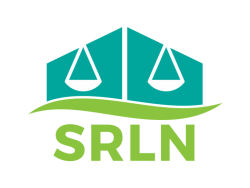
SRLN Brief: How Many SRLs? (SRLN 2019)
National SRL Estimates from srln.org In the United States, civil legal disputes are handled in more than 15,000 courts, in a patchwork of jurisdictions among state, county, municipal authorities. Civil courts handle cases such as divorce, custody, child s ...
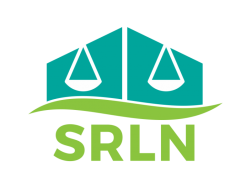
SRLN Brief: Rule 6.5- A Powerful Tool to Diversify Pro Bono and Transform Court Services (SRLN 2015)
Ethics rule 6.5 is a powerful tool to diversify pro bono programs and to transform court services because it allows unbundled lawyers to perform real time services in court-annexed programs without the onerous clerical burdens and limitations under the tr ...
Article: Access to Justice: The Emerging Consensus and Some Questions and Implications (Zorza 2011)
In this 2011 article, Richard Zorza writes that there is a broad emerging general operational consensus within the relevant legal community- courts, bar and legal aid- about the approaches needed for a comprehensive solution. He notes that the four key el ...
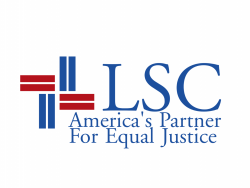
Article: Using Technology to Enhance Access to Justice (Cabral, Chavan, Clarke, Greacen, Hough, Rexer, Ribadeneyra, Zorza 2012)
This is a collection of seven article published in the Fall 2012 issue of the Harvard Journal of Law and Technology (JOLT) as part of LSC's June 2012 technology summit. These articles focus on how to best utilize particular technologies to enhance ac ...
Article: The Access To Justice “Sorting Hat” Towards A System Of Triage And Intake That Maximizes Access And Outcomes (Zorza 2012)
In this seminal article, Richard Zorza discusses the fact that we know little of the processes by which the millions of people who approach courts, legal aid intake systems, and hotlines are directed into them, or the access services they do or do not rec ...
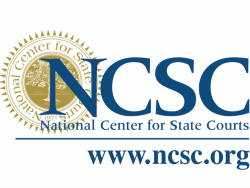
Article: Triage Protocols for Litigant Portals: A Coordinated Strategy Between Courts and Service Providers (Clarke, Zorza, Alteneder 2013)
A project team that included representatives from the courts, the civil legal aid community and the private bar engaged in a joint process to develop standardized and coordinated triage protocols that link litigant services, courts and legal services. Thi ...
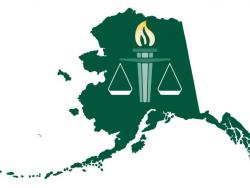
Article: Literacy and the Courts (Alteneder 2007)
This article sets out how the prevalence of low literacy in America, as identified by the National Assessment of Adult Literacy (NAAL), explains why so many employees, clients and customers in everyday situations often fail to complete forms accurately, d ...
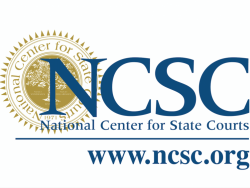
Paper: The Role of Technology in the Access Solution (Alteneder, Genz, Hertz, Hough, Jacobs, Rawdon 2005)
This paper, was prepared for the Summit on the Future of Self-Represented Litigation (March 24-25, 2005; Chicago, IL) funded by the State Justice Institute (additional Summit materials can be found here). It addresses the critical role that technology sol ...
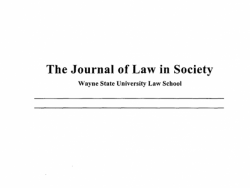
Article: Consumer Centric Design: The Key to 100% Access (Alteneder, Rexer 2015)
These authors, like many in the justice sector, believe that we are at a unique time and that through the integration of key innovations we can move towards 100% access to justice, defined by the authors as a system in which some form of effective legal a ...
Report: Evaluation of Innovations Designed to Increase Access to Justice for Self-Represented Litigants (Hough 2005)
This paper, prepared for the Summit on the Future of Self-Represented Litigation (March 24-25, 2005; Chicago, IL full Summit materials available here) is an intial analysis of efforts to assess the effectiveness of self-help services by identifying key fi ...